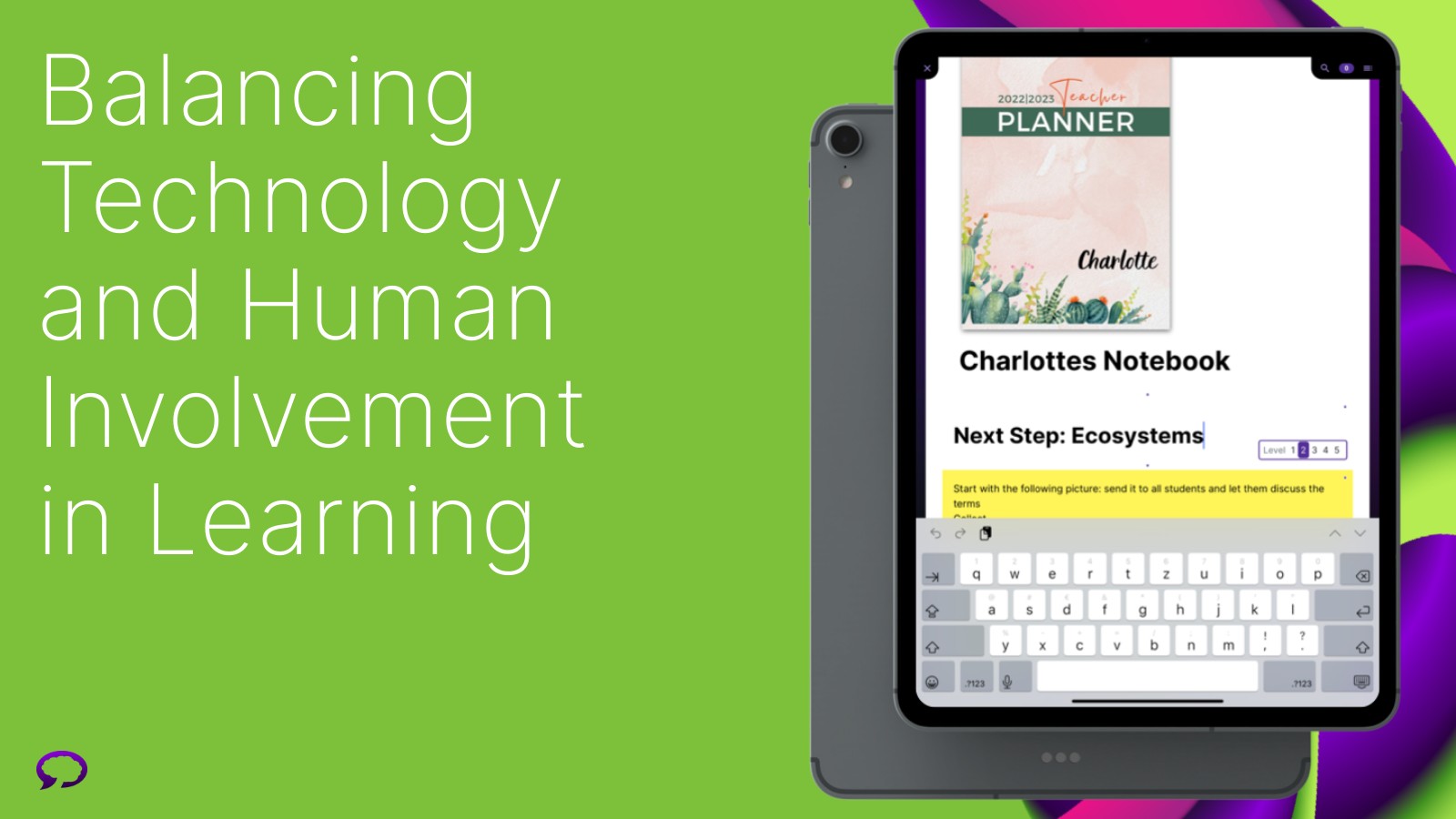In a world where technology is rapidly transforming the way we live and work, the world of education and learning is no exception. From AI-driven personalized learning to interactive online platforms to knowledge management technology has become an integral part of the learning landscape. The excitement surrounding AI-driven content generation can sometimes lead to the misconception that AI alone can replace all human involvement in content creation.
However, the wisdom and expertise of human coaches and mentors are equally invaluable. Striking the right balance between technology and human guidance is the key to building effective learning programs that empower individuals and organizations.

In this blog, we will explore the intricate dance between technology and human expertise in shaping successful learning journeys.
Leveraging Technology in Learning Programs
In our digital age, technology offers a plethora of possibilities to enhance learning experiences. Automation streamlines administrative tasks, allowing coaches to focus on coaching. AI-driven personalization tailors content to individual needs, ensuring learners receive the right information at the right time. Accessibility features empower diverse learners, making education more inclusive.
However, effectively leveraging technology involves selectively automating processes, integrating AI wisely to enhance rather than replace human instruction, and recognizing that technology is a tool meant to support, not replace instructional design.
The Human Touch in Learning
While technology can efficiently deliver content, the human touch remains irreplaceable in the learning process. Coaches, course creators, trainers, and mentors bring empathy, guidance, and mentoring to the table. They create a supportive and motivating environment where learners can flourish. Pedagogical theory and human interaction work in synergy to deepen comprehension and facilitate critical thinking.
In the age of technological advancements, human expertise continues to be the cornerstone of effective education. The challenge lies in recognizing that technology enhances coaches’ capabilities rather than diminishing their role, and that the collaborative efforts of both humans and technology create truly transformative learning experiences.
Ethical Considerations in Automated Learning
As technology becomes more integrated into education, ethical questions emerge. The responsible use of AI and automation in learning programs requires a deep understanding of the ethical implications. Coaches and organizations must navigate issues like data privacy, algorithmic bias, and the potential for over-automation.
Achieving the right equilibrium entails ethical decision-making regarding the utilization and application of technology. The human element is vital in ensuring that technology is used ethically, fostering a sense of responsibility, and addressing the societal impact of automated education.
Let’s look at an example: In a corporate setting, a company aggressively automates its employee training, relying solely on AI to deliver content and assessments. Employees begin to express frustration and disengagement, emphasizing the need for a balanced approach that includes human interaction.
Building a Robust Learning Ecosystem
To create an effective learning program, organizations must consider several crucial elements. It begins with developing a performance-focused learning strategy that aligns with business goals. Identifying the specific skills needed for success ensures that learning programs are tailored to meet organizational needs. Maximizing existing learning technology helps support and grow employee performance while optimizing resources.
A well-crafted onboarding experience sets employees up for success from day one, fostering engagement and productivity. Lastly, a leadership program nurtures human skills like empathy, collaboration, and adaptability, complementing the tech-driven aspects of learning. Building a robust learning ecosystem requires a thoughtful integration of technology and human expertise.
Conclusion
In the dynamic landscape of education, the harmonious collaboration of technology and human expertise is the path to effective learning programs. Technology enhances accessibility, personalization, and efficiency, while coaches provide mentorship, guidance, and ethical oversight.
Striking the right balance ensures that education remains transformative and empowering. By building a learning ecosystem that leverages the strengths of both technology and human coaches, we can create impactful, engaging, and ethical learning experiences that prepare individuals and organizations for the challenges of the future
If your curiosity is piqued and you’re eager to explore the transformative impact technology can have on your learning strategies, I extend an invitation to connect. Engage with me on Medium or LinkedIn, drop a comment sharing your insights below, or reach out directly for a deeper conversation.
Together, let’s chart a course towards enhanced performance, engagement, and retention in our professional spaces, fueled by the power of learning.
Let’s make learning your competitive advantage!
This post was first published on Medium.


